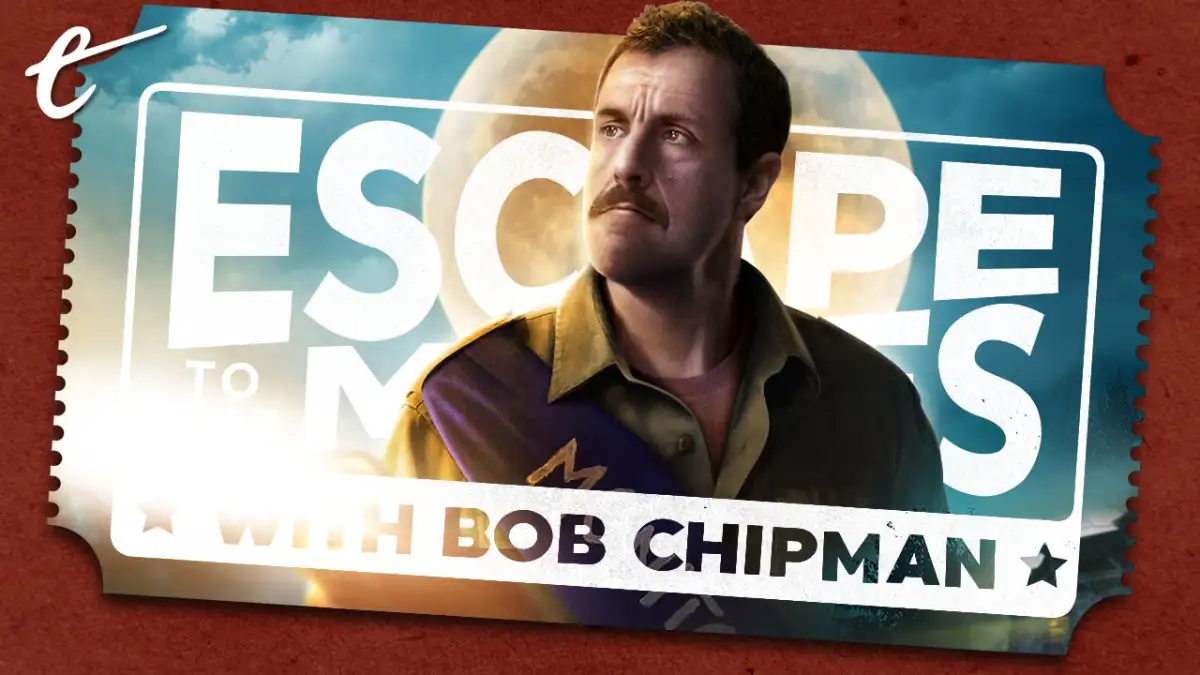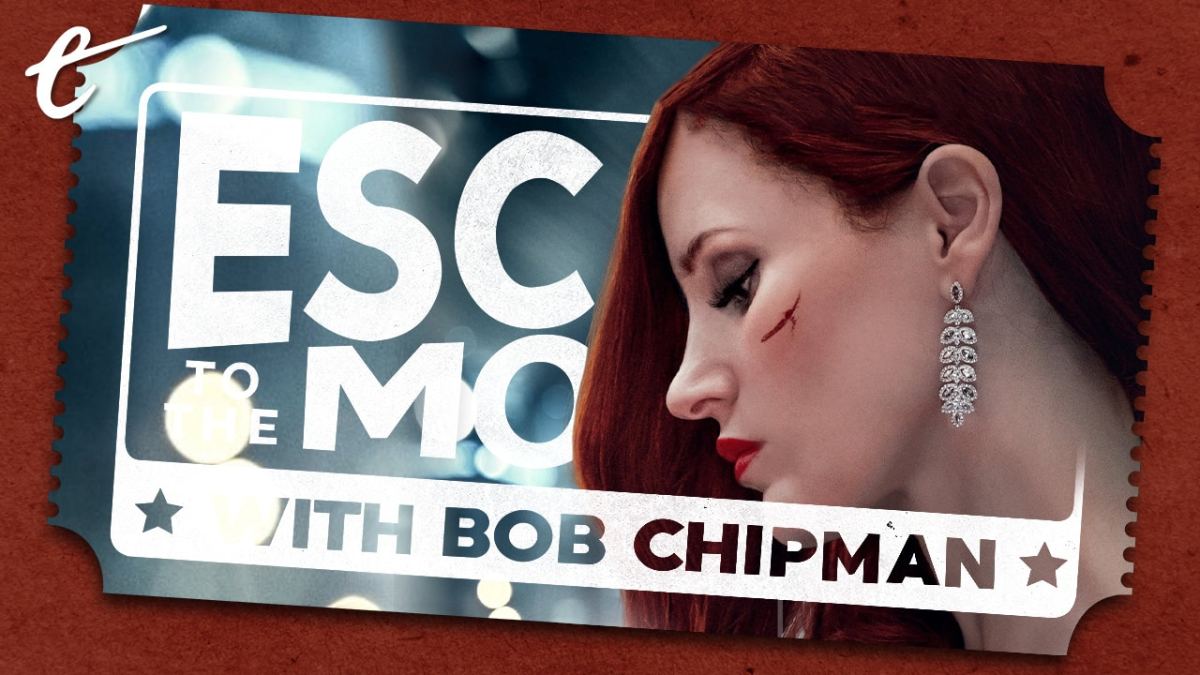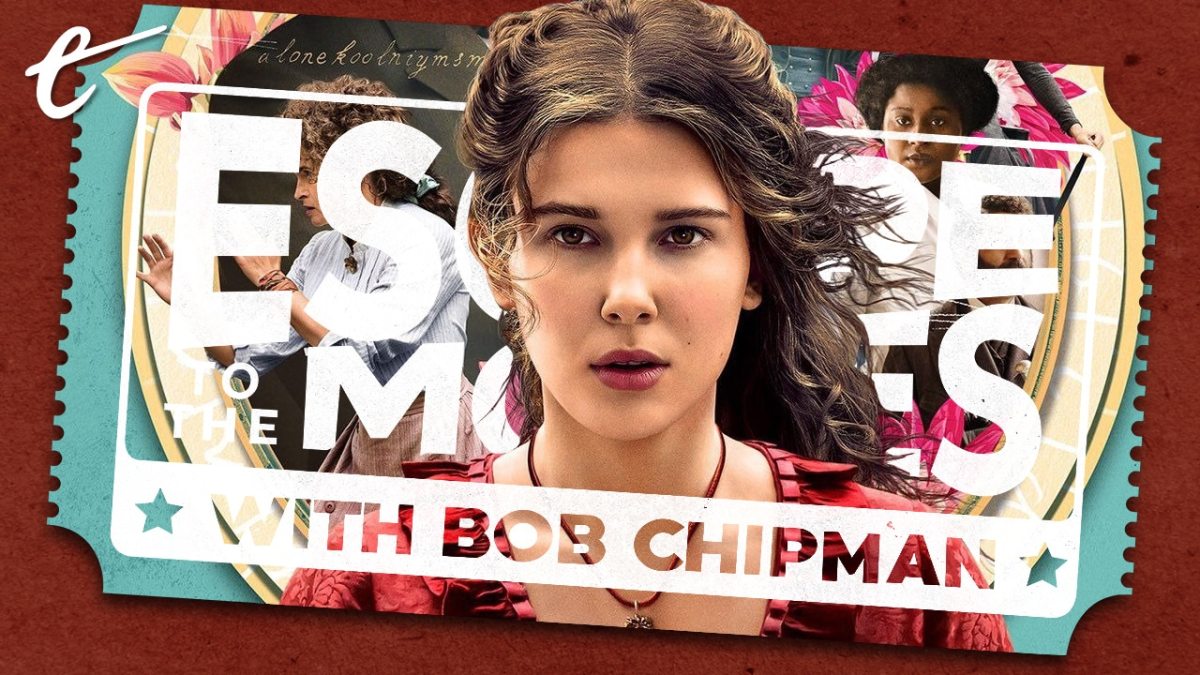Well, this certainly presents a unique set of challenges to a critic, doesn’t it? Not that there’s anything particularly obtuse or difficult to wrap one’s mind around when it comes to the Deadpool franchise. 2016’s Deadpool established all the most bizarre things about the R-rated spin-off of the X-Men movies that exists in the same universe as those characters but is free to break the rules of continuity because it’s also a comedy making fun of those movies and the superhero genre in general. Its hero is a smartass contract killer in red and black ninja gear whose mutant healing powers make him impossible to kill. Said hero is also cognizant that he’s a fictional character inhabiting a comic book movie being played by actor Ryan Reynolds, but no one else in his world knows this. That strangeness carried over admirably into a sequel which (somehow?) landed nicely in the zone of being equal to or greater than its predecessor for most fans.
Rather, the difficulty comes from the fact that Once Upon a Deadpool is both a new film and also not precisely a new film, so there isn’t much of a modern template for reviewing it. A PG-13 re-issue of the very R-rated Deadpool 2 released jointly (and in no particular order) for the purposes of keeping 20th Century Fox Studios on the scoreboard for the holidays while post-production wizards try to hammer a watchable film out of the troubled X-Men: Dark Phoenix (and decide when or whether to release the currently in limbo New Mutants); raising money via partial ticket sales donations to the Fuck Cancer charity; and (one sort of has to assume) act as a proof of concept for the Merc with a Mouth’s ability to play passably nice with the family-friendly Marvel Cinematic Universe when Disney completes its acquisition of Fox and Deadpool plausibly becomes the only part of the X-Men movies anyone wants to even think about keeping.
To that end, while about 75-80% of Once Upon a Deadpool is in fact a “sanitized” (if still fairly violent and on the “hard” edge of PG-13) version of Deadpool 2 — a film which I’ve already reviewed, albeit for a different outlet — enough of it has been reworked through editing, including material that’s been excised or altered being replaced by new scenes (most notably: The first of two opening massacres is gone; a new comedic exchange between Deadpool, Negasonic Teenage Warhead and Yukio has been added; and the plot is advanced via Deadpool and Fred Savage parodying the framing device from The Princess Bride) that it does indeed merit consideration as a film in its own right. Ergo, the question then becomes: What does that consideration look like? An opportunity to question whether or not Deadpool 2 “holds up” in the first place? A simple cataloging of differences? Do you treat it merely as an alternate version of Deadpool 2 or does it rise to the level of being its own self-parody — a commentary on the genre, it’s place therein, the nature of censorship, etc?
Taken as a work by itself (though, since it asks us to be, also in “awareness” of the original version) the good news for fans and/or the hypothetical target audience of under-18 viewers who couldn’t find an adult to get them into the R-rated version, is that Once Upon a Deadpool retains most of Deadpool 2’s overall charm even as it loses most of its gore, nudity and naughty language. In fact, it almost ends up illustrating just how excessive its performative excess really is.
Even in “neutered” form, the series’ signature fusion of over-the-top ‘90s comics edginess, present-day action movie grit, and “Duck Amuck”-style cartoon logic feels very apart from any other superhero movie on the market. The main storyline (which mixes Deadpool’s suicidal depression being impeded by his immortality with a Terminator-style time-traveling assassin riff that swaps out “Judgment Day” and Skynet with topical hot-buttons about school shootings and LGBTQ conversion therapy) is dark and biting enough to feel like an intentional rebuke to the idea that not only Deadpool himself but other R-rated Marvel fixtures like Daredevil, The Punisher or Jessica Jones can’t possibly fit into (or alongside) the “real” Marvel Cinematic Universe.
If for some reason you’d never seen a Deadpool movie before and decided to start with this one, you may not get most of the self-referential deconstructionist jokes, but you’ll definitely understand why people outside the obvious “edgelord teens who’ll laugh at anything” demographic ended up liking Deadpool in spite of themselves: There’s a character under the caricature, and the surface-level ribbing of superhero tropes gives way to the occasional surprisingly cutting insight about the genre’s limitations and issues, as when Deadpool introduces his temporary X-Men teammates as “A dated metaphor for racism from the ‘60s.”
It certainly says something, at least, that even without the contrast of the filthier gags the best running joke remains the utter delight Deadpool takes in how much it annoys NTW that her girlfriend Yukio doesn’t despise him — though I imagine diehard X-Men fans will be more immediately amused by Savage excitedly rattling off a supporting character’s absurdly complicated comic book backstory (assuming they can stop parsing whether or not a newly added joke about X-Force being “just something Fox made up to keep Josh Brolin employed” means that spin-off is indeed not happening anymore.)
On the other hand, Once Upon a Deadpool’s self-censorship meta-gag feels like a missed opportunity. As noted earlier, the film’s only been trimmed right up to the edge of a soft-R, mostly by swapping out scenes, removing blood and gore, and changing some lines. Considering how funny the “self-bleeping” in the framing scenes is, even more fun could be had while also scoring some points regarding the absurdity of censorship standards overall by being even more draconian or pointing out standard industry hypocrisy. For instance, NTW and Yukio remain an out lesbian couple in this version, which is not always the case for LGBTQ references in genre films. That’s a “censor note” it’d be decidedly in character for Deadpool to argue about.
In the end, the fact that more isn’t done with the “remixing” premise means that Once Upon a Deadpool is a lesser curiosity (albeit adjacent to a good cause) rather than the true companion piece to Deadpool 2 it could have been. Only completists need to rush out and see this. But if every showing of that Spider-Man cartoon is sold-out at your theater this weekend this’ll do, and at least they’re going to give some of the money to a good cause.






Published: Dec 14, 2018 12:04 pm